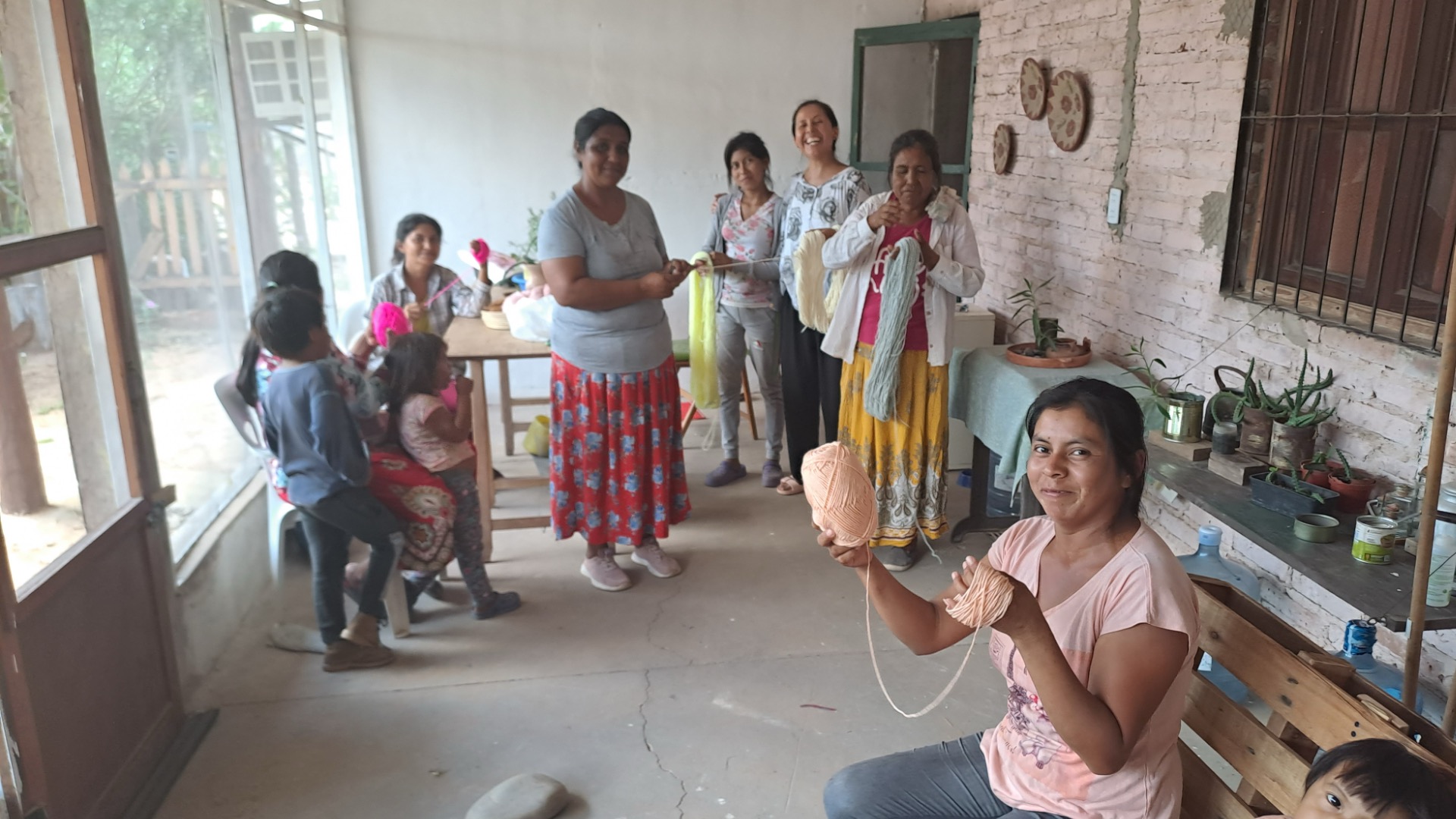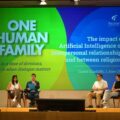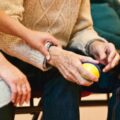
Workshop
The richness of inhabiting a place and the encounter with the memory that lives within us
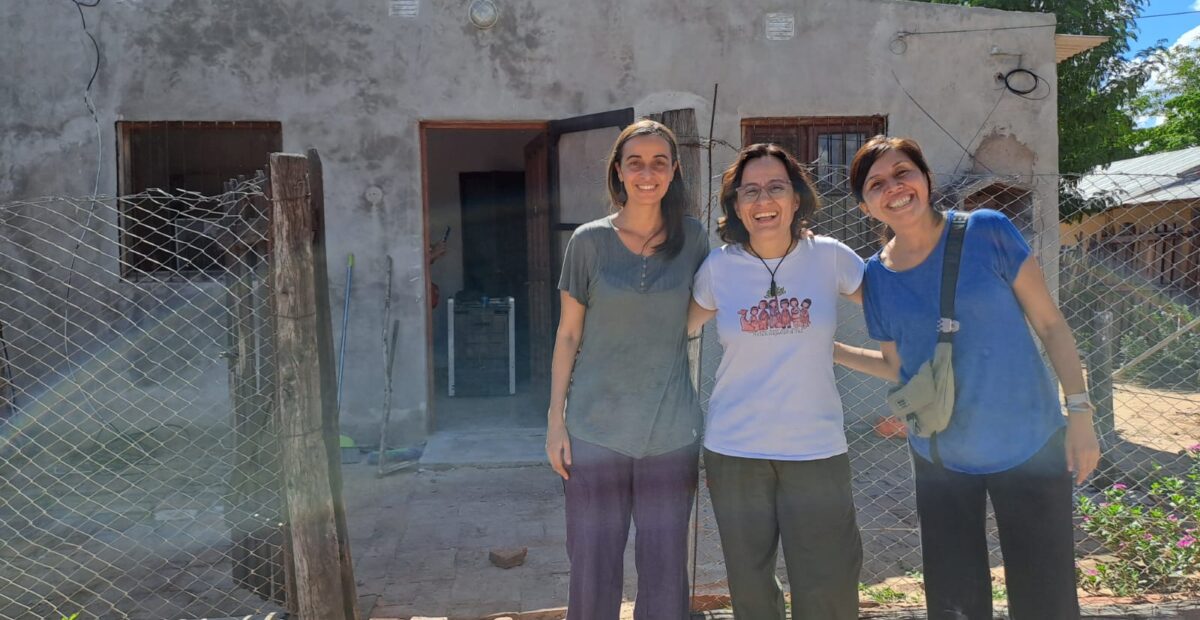
By Betiana Colina and Paula Renata González (Argentina) – Ciudad Nueva Argentina
A small town in northern Argentina has become a meeting place between indigenous and Creole populations, fostering cultural exchange and the construction of relationships based on respect and active listening.
Dragones, Argentina – For over a year, Betiana and Renata have been part of the community of Fortín Dragones, a small town in northern Argentina. Daily they experience an openness to new ways of conceiving bonds and relationships with nature, material goods and life itself. “We have understood that thinking about how things should be prevents us from feeling. Feeling and making space in our hearts for an encounter with the other, instead, this allows us to develop a new way of seeing and thinking”, they say.
On March 1, 2023, after a year and a half of preparations, we reached Fortín Dragones to inaugurate a new community of the Focolare Movement. Fortín Dragones is a town of about five thousand inhabitants located in the Chaco Salteño region of Argentina, at 1800 kilometers of the National Route 81. The mission of the new Focolare would be to live an experience of intercultural dialogue with indigenous peoples, particularly with the Wichí people.
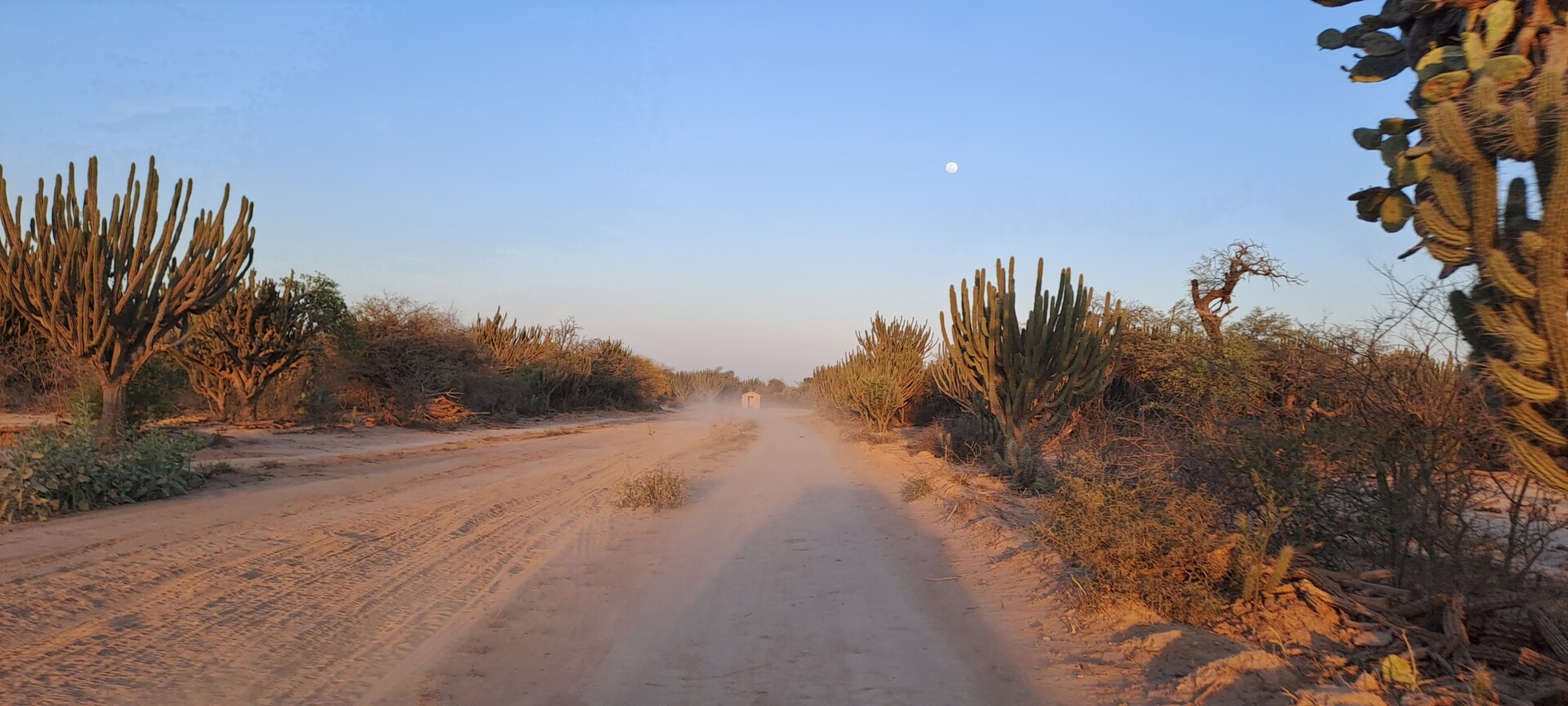
We took our first steps together with the local Church. It was Monsignor Luis Scozzina, O.F.M. (Order of Friars Minor), bishop of the diocese of Orán, who spoke to us about the National Route 81, inviting us to this village known as the Flower of the Chaco, where seven Wichí communities and various Creole families live. He did this with the perspective of “drawing near,” as the National Route 81 is one of the most peripheral territories of this diocese.
A new way of seeing and thinking
As we prepared for this experience, it was very important to ask ourselves what the first steps would be. Some words pointed us in the right direction: “Arrive and inhabit, observe, listen, know, explore the area, draw near, and strengthen.”
“Arriving” and “inhabiting” confronted us with the challenge of a new context that was very different from our previous experiences: remote, characterized by high temperatures, and above all, by encounters with new cultures such as the Wichí and, as we discovered over time, the Creole culture as well. “Listening” required us to be silent, a silence that perhaps was the first exercise to create a bond with someone different from us. “Observing” and adapting to different rhythms took away all haste and, above all, helped us to value the present more. Learning to speak more softly and slowly allowed us to get to know one another.
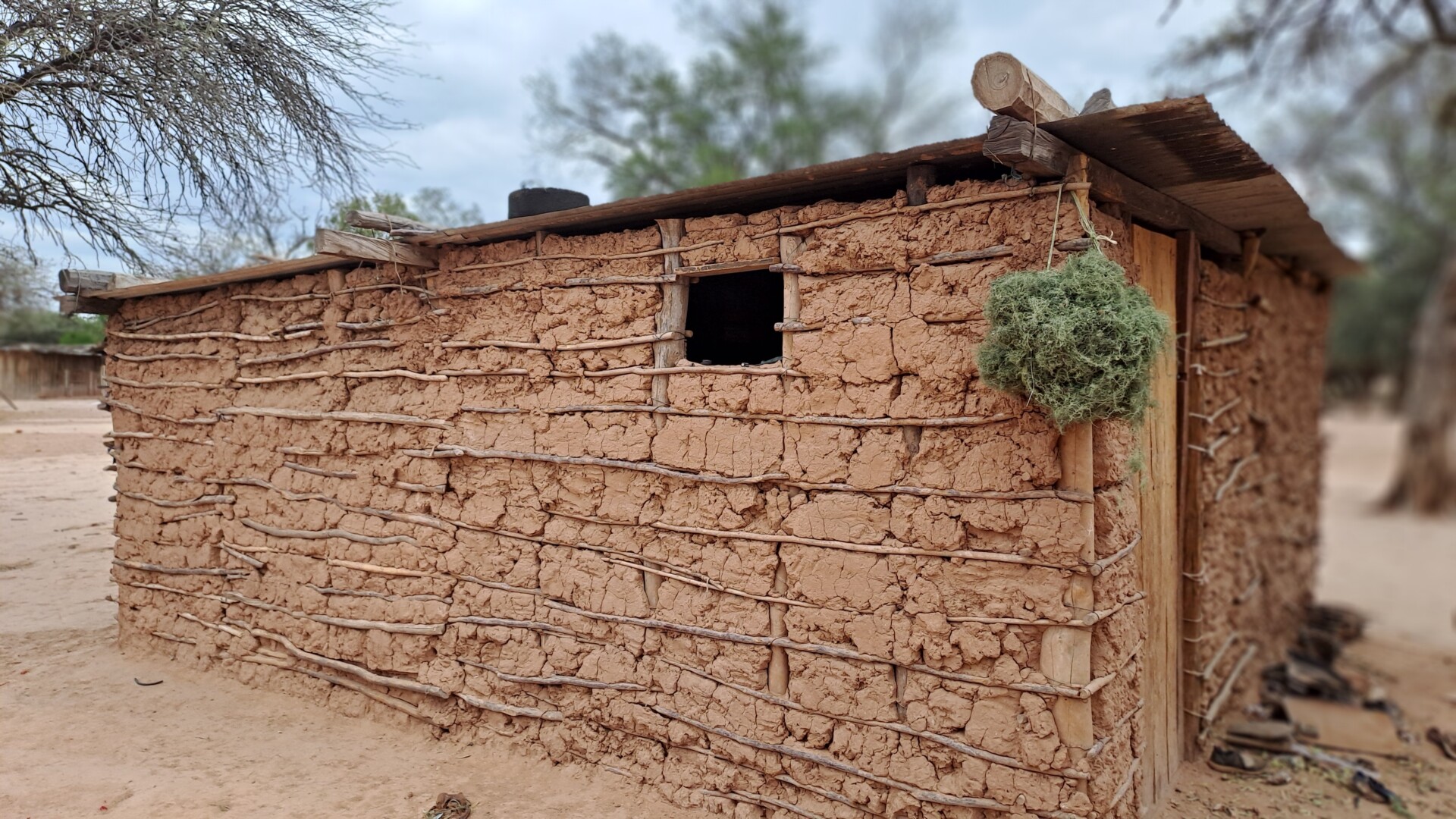
“Recognizing”, a step beyond “knowing”, opened the way to new learning opportunities, experienced through trials and errors. One of these was learning to feel similar. Entering a different social context, where the concept of progress is absent and accumulation harms the natural environment (and consequently the social environment), made us understand how to relate to nature, taking only what is necessary for today. We questioned our attitude and our way of approaching the other different. It is said that the Wichí culture is based on hunting and gathering, thus on subsistence, but in reality, it is much more. The bond established with vegetation and everything that inhabits it is, essentially, reciprocity. Giving and receiving. It is austerity. Only what is necessary. Therefore, a progressive reduction of vegetation has led to severe malnutrition. Living in peri-urban areas has changed the habits of these people and we could say that it has disoriented them, especially in how they experience relationships.
It is there that we discovered one of the most challenging keys to dialogue, in the meeting between cultures, in recognizing diversities and traditions, in not expecting the other to change. We understood that the search for uniformity breaks communion and harms the richness of exchange. It is there that we began to feel and think about how to build a path of unity. Above all, because in dialogue, the plurality of knowledge is a richness that allows us not to expect change, not to think we must do something. It is essential, instead, to focus on “being” to build a bond, to cultivate relationships, and to interact with people and with nature. We understood that thinking about how things should be prevents us from feeling. Feeling and making space in our hearts for the encounter with the other, instead, allows us to develop a new way of seeing and thinking.
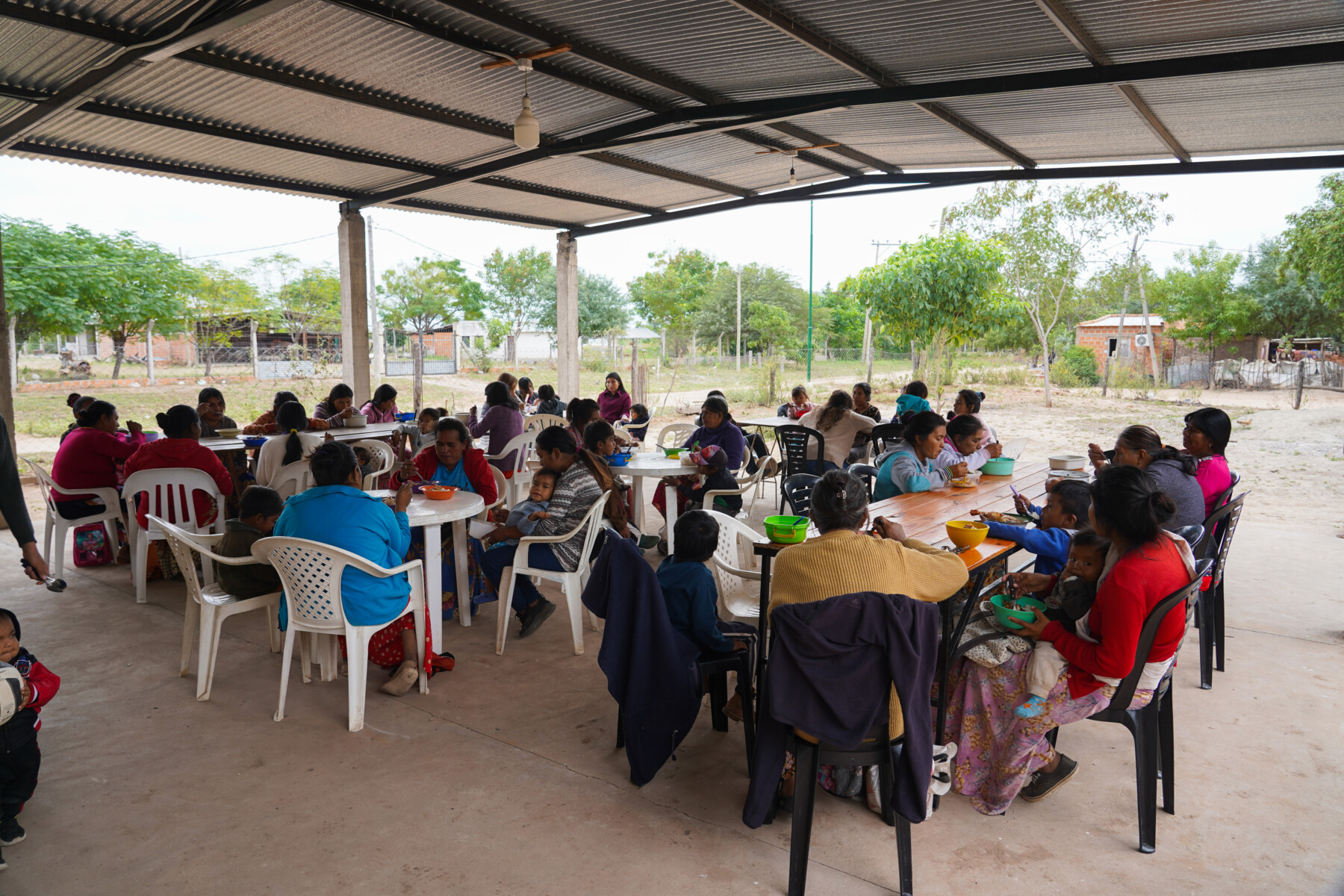
The challenge of “strengthening” required us to contribute to what was already there rather than designing something new. We had to learn to navigate new ground, where the professional experience we brought with us confronted a very different reality that presupposes, above all, cultural mediation. We tried to understand together what and how to do things, and especially why, starting from an understanding of the needs and issues to be addressed. Finally, we asked ourselves with whom we could prepare for the encounter with these people.
A working table to define priorities for social coexistence
In September 2023, a working table was established in the village of Dragones, located at the local school. We began to look at reality together, in order to give greater impetus to the actions to be promoted. The school is a central place where everyone gathers. Despite the enormous cultural distance with the Wichí people (their language is spoken only orally and by 90% of the population), it is a place of coexistence between cultures. The school invited various social and public organizations that specifically address the malnutrition of children and mothers to the table. It also invited the various communities (through their respective leaders), the police, the medical center, Christian churches, the Catholic Church, the Anglican Church, the Swiss United Church of Reformed Tradition, the Assembly of God (a Swedish church that is part of the Pentecostal movement), and other churches. Each of them performs valuable work with the Wichí and Creole populations. Our common goal is to ensure and maintain healthy social coexistence, with particular attention to childhood, adolescence, and youth. The problem of alcohol and drug consumption at a young age is one of the main concerns, along with human trafficking, violence, nutrition, and access to water, among other priority issues.

Projects
At this point, it was important for us to heed Chiara Lubich’s invitation to “remain in Love” as she indicated: “putting oneself in the other’s shoes” so that this love grows until it becomes reciprocal, communion
We are charting a path, and entering the local culture is allowing us to understand, especially with our hearts, what our task is and what mission we are called to fulfill. In the Wichí culture, the mission of life is Yahinchoye lênâyij ta is, which means “to seek the right path.” Instead, being able to walk together aims at yiwitche lênâyij, which means “to find the right path,” and this is what we have always pursued together with Chiara Lubich.
On the 1st of February 2024, we formally took over the dining hall, a privileged space to meet, know, and talk with the mothers and young children of the Wichí people and with some Creole individuals. From Monday to Friday, we welcome an average of fifty people, although on some days forty come and on others eighty. For us, this task has involved new working hours and a daily commitment that has allowed us to build relationships with the team of cooks and cleaners who have already been working there for two years. We have also started creating a garden.
Another initiative already active since 2022 is the Dragones Project. It is carried out by some members of the Santa María de la Lucila parish in Buenos Aires, who, with great generosity, work remotely providing food, water, education, and healthcare. We take care of pastoral animation, with the goal of being a nearby Church that witnesses the Gospel. We experience that sacramental life that nourishes us and confirms us in every step of our Christian journey. However, it is approaching others and loving with the measure of Jesus that makes us children of God, and for this, it is necessary to step outside the parish structure.
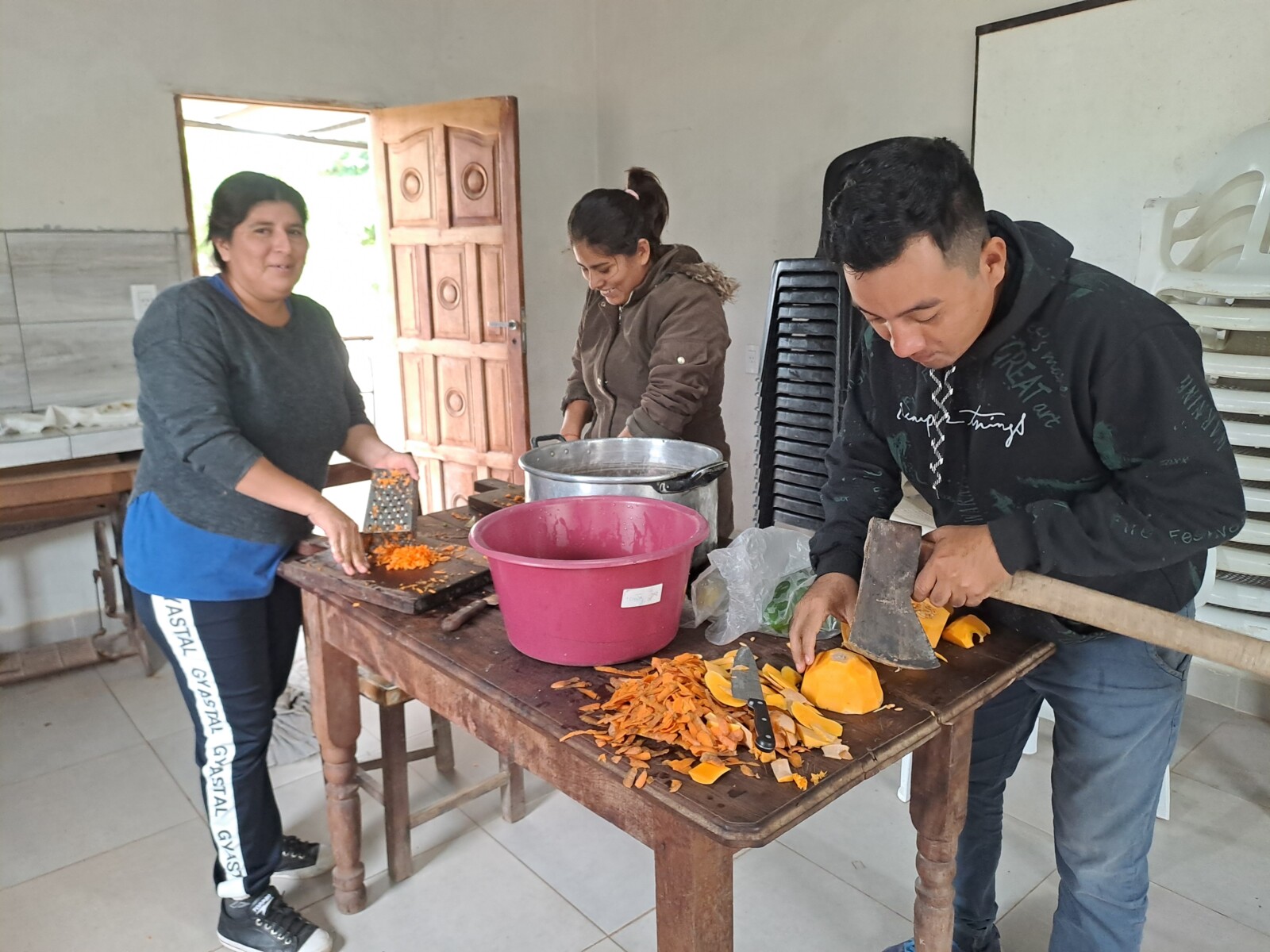
The National Route 81 is a border corridor in northern Argentina where human trafficking and the trafficking of people are widespread. This has led us to join the diocesan team for prevention against trafficking, supported by the Talentos Civil Association and accompanied by the CEMI (Episcopal Commission for Migrants and Itinerants).
A training project for parents and teachers has also been launched in schools. In the areas along the National Route 81, the project primarily targets the Wichí communities, as they have highlighted how fragile parenting and caregiving relationships are in the local context. This year, the course has been implemented as a public policy throughout the province and has become mandatory for all teachers in nurseries and preschools, starting from the city of Orán. We are also working with Wichí women along the National Route 81. We are implementing a program that involves thirty women from fifteen communities and aims to promote self-esteem, leadership, and the appreciation of culture. The program is taking its first steps on a journey that promises to be full of challenges.
